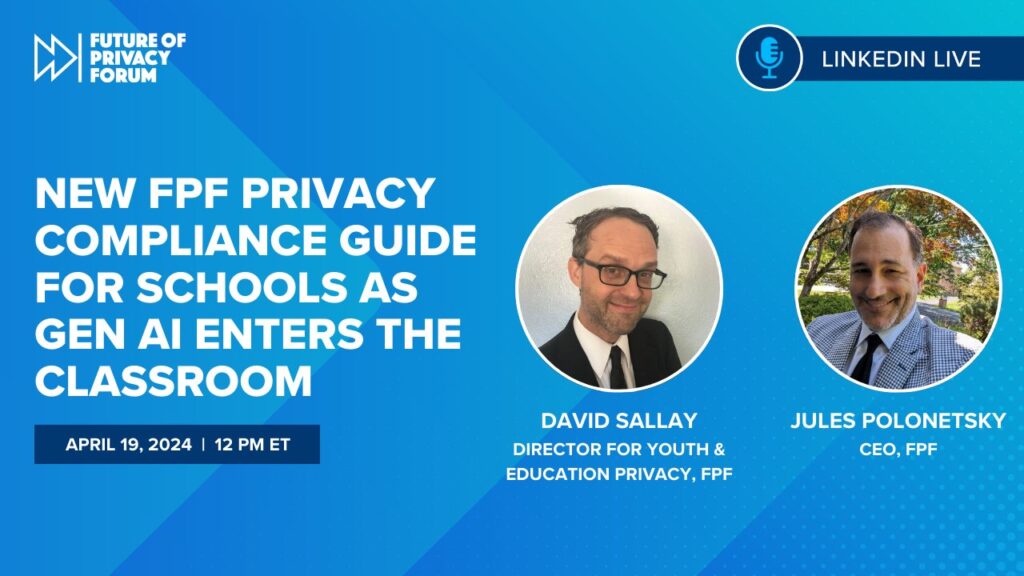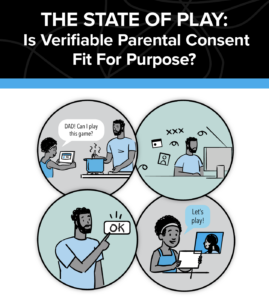FPF Develops Checklist & Guide to Help Schools Vet AI Tools for Legal Compliance
FPF’s Youth and Education team has developed a checklist and accompanying policy brief to help schools vet generative AI tools for compliance with student privacy laws. Vetting Generative AI Tools for Use in Schools is a crucial resource as the use of generative AI tools continues to increase in educational settings. It’s critical for school leaders to understand how existing federal and state student privacy laws, such as the Family Educational Rights and Privacy Act (FERPA) apply to the complexities of machine learning systems to protect student privacy. With these resources, FPF aims to provide much-needed clarity and guidance to educational institutions grappling with these issues.
Click here to access the checklist and policy brief.
“AI technology holds immense promise in enhancing educational experiences for students, but it must be implemented responsibly and ethically,” said David Sallay, the Director for Youth & Education Privacy at the Future of Privacy Forum. “With our new checklist, we aim to empower educators and administrators with the knowledge and tools necessary to make informed decisions when selecting generative AI tools for classroom use while safeguarding student privacy.”
The checklist, designed specifically for K -12 schools, outlines key considerations when incorporating generative AI into a school or district’s edtech vetting checklist.
These include:
- assessing the requirements for vetting all edtech;
- describing the specific use cases;
- preparing to address transparency and explainability; and
- determining if student PII will be used to train the large language model (LLM).
By prioritizing these steps, educational institutions can promote transparency and protect student privacy while maximizing the benefits of technology-driven learning experiences for students.
The in-depth policy brief outlines the relevant laws and policies a school should consider, the unique compliance considerations of generative AI tools (including data collection, transparency and explainability, product improvement, and high-risk decision-making), and their most likely use cases (student, teacher, and institution-focused).
The brief also encourages schools and districts to update their existing edtech vetting policies to address the unique considerations of AI technologies (or to create a comprehensive policy if one does not already exist) instead of creating a separate vetting process for AI. It also highlights the role that state legislatures can play in ensuring the efficiency of school edtech vetting and oversight and calls on vendors to be proactively transparent with schools about their use of AI.
Check out the LinkedIn Live with CEO Jules Polonetsky and Youth & Education Director David Sallay about the Checklist and Policy Brief.
To read more of the Future of Privacy Forum’s youth and student privacy resources, visit www.StudentPrivacyCompass.org.



